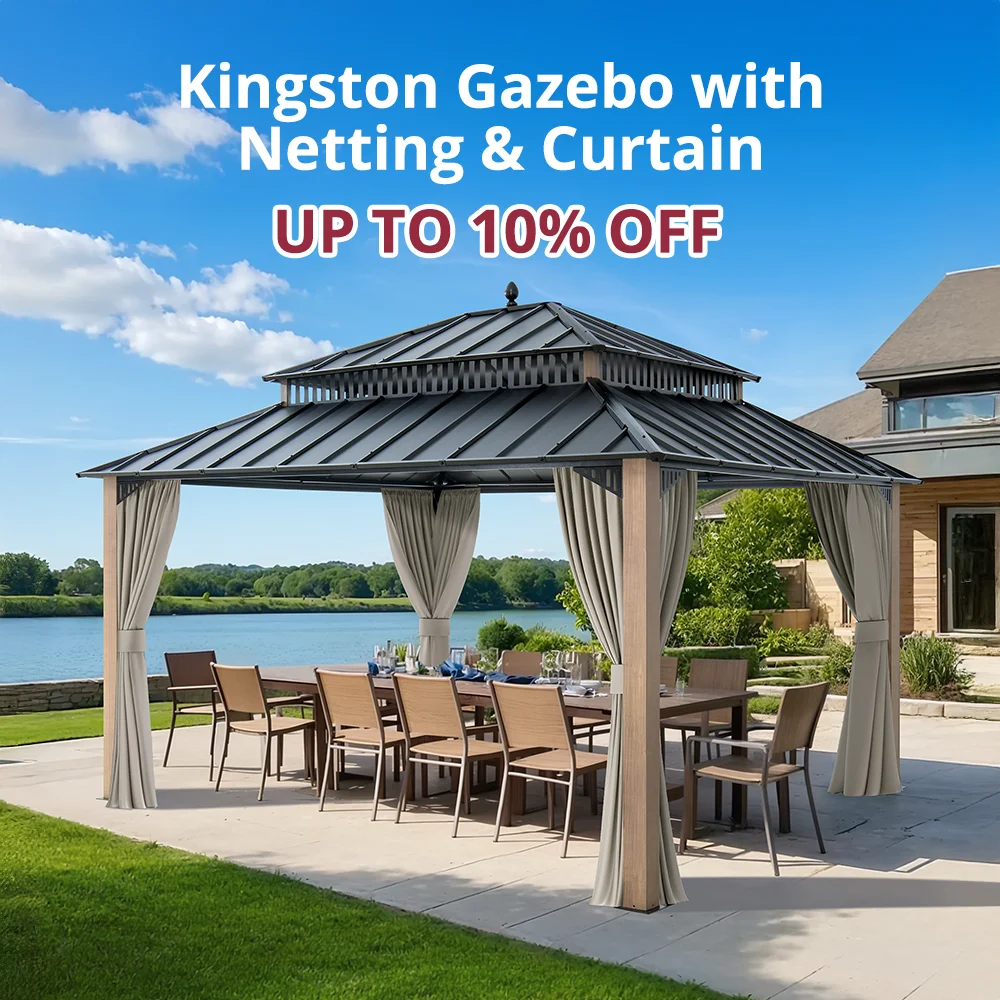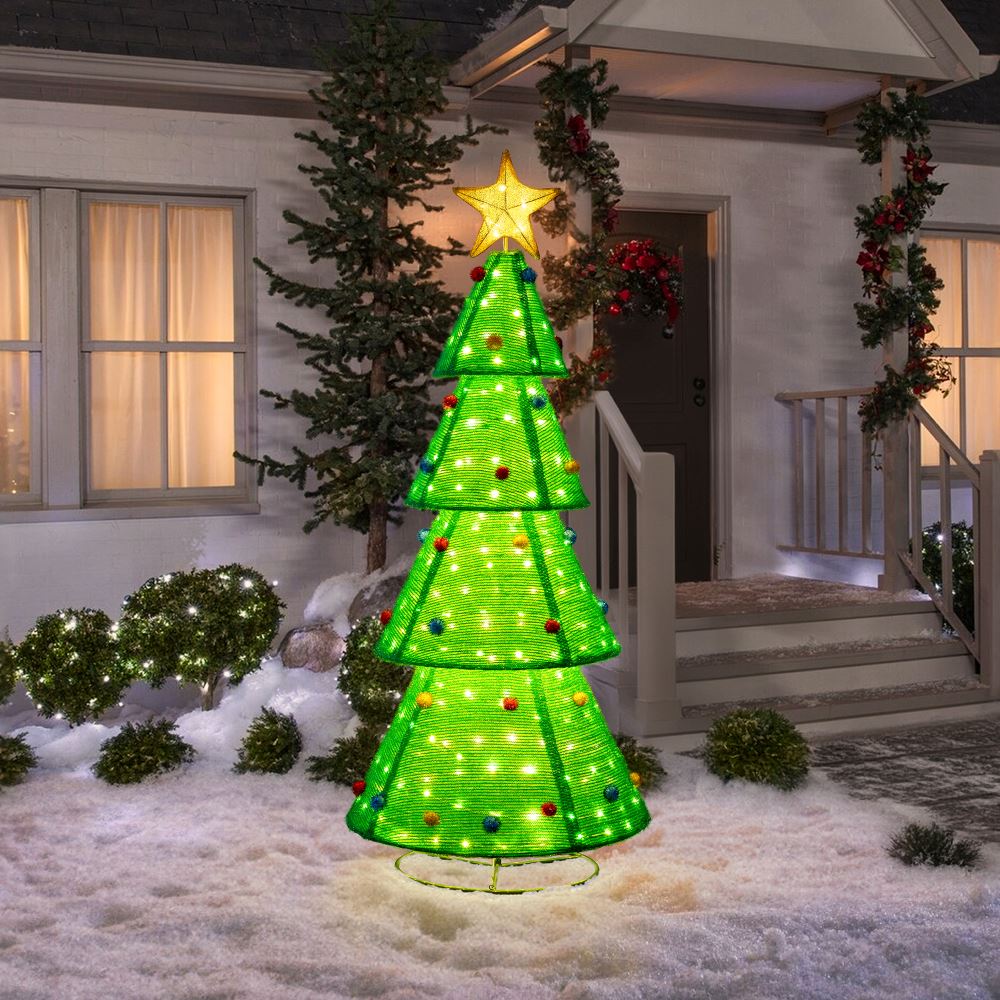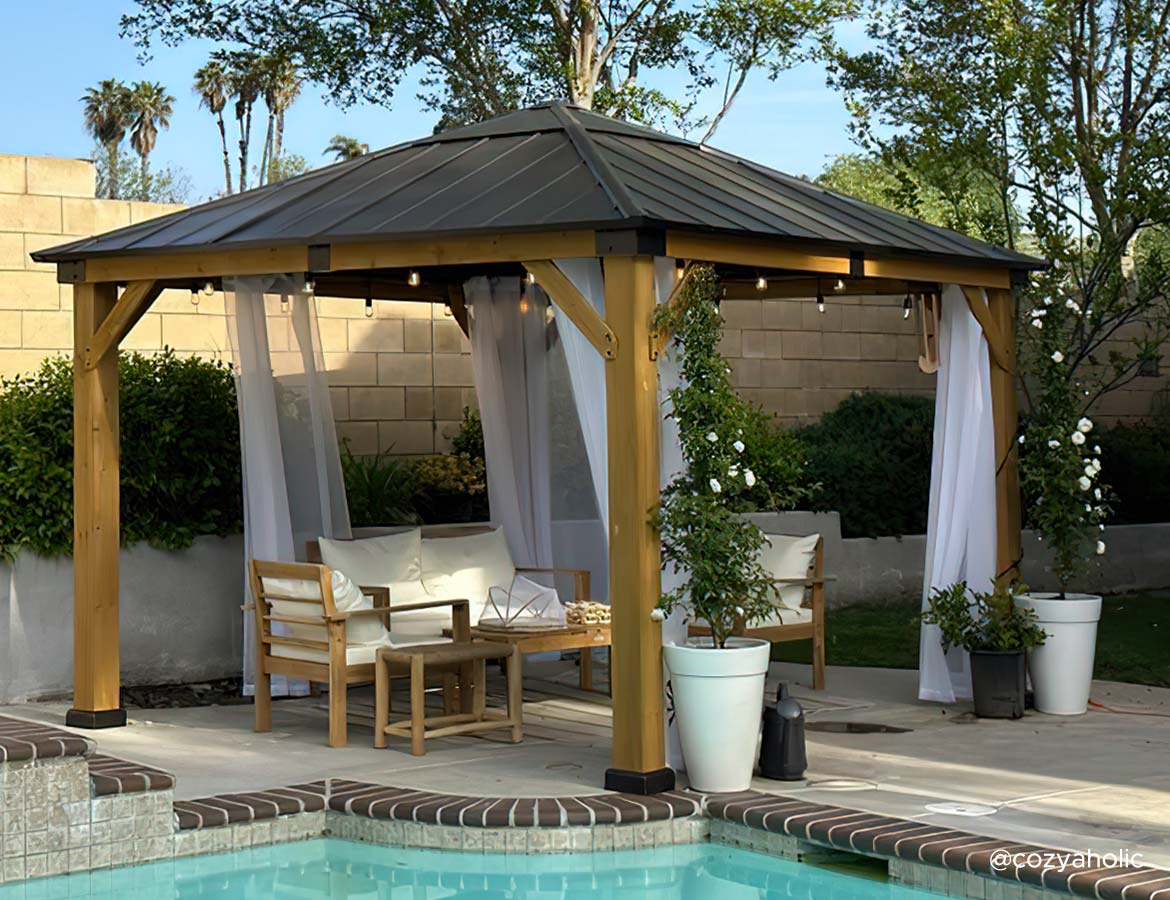Do Metal Gazebos Attract Lightning?
Despite popular belief, metal does not attract lightning. What lightning actually targets is height, isolation, and proximity to other conductive paths—not the material itself. So, your hardtop backyard gazebo with a metal roof isn’t any more likely to be struck than a wooden one of the same height and location.
Where the confusion arises is in the fact that metal conducts electricity. This means that if lightning does strike a metal structure, the current can travel through the frame and to the ground—especially if the structure isn’t grounded. But being made of metal doesn’t make the gazebo a magnet for lightning.
Location Matters More Than Material
The placement of your gazebo plays a far bigger role in whether it's at risk during a lightning storm. A few key points to consider:
A gazebo placed in the middle of an open yard is more exposed than one near trees or buildings.
A structure located on a hilltop is more likely to be hit than one on flat ground.
Taller structures with no nearby taller objects are naturally more at risk.
No matter the roof material, if your gazebo is the tallest feature in the area, it could be a candidate for a lightning strike.
Should You Ground a Metal Roof Gazebo?
While most residential gazebos are not required by code to be grounded, adding a basic grounding system can be a smart safety upgrade—especially for steel roof gazebo models or large metal patio gazebos. A proper setup uses:
A metal rod (or several) driven deep into the ground
Conductive wire attached securely to the gazebo frame
Safe routing of any electrical wires to prevent overload during a strike
With a grounded gazebo, if lightning were to hit, the electrical charge would travel safely into the earth, reducing the risk of harm to people and minimizing structural damage.
What to Avoid During Lightning Storms
Even with precautions in place, it's best to avoid using your gazebo during a storm. Here’s what not to do:
Don’t touch metal parts of the structure while lightning is nearby
Avoid plugging in or using electronic devices in the gazebo
Don’t assume a roof or cover for gazebo offers protection from electrical surges—it doesn't
If you're outdoors when a storm approaches, your safest bet is always to head inside.
What Makes Metal Roof Gazebos Popular?
Safety aside, gazebos with metal roofs continue to grow in popularity for good reason:
They last longer than canvas or shingle-roof options
They're resistant to heavy rain, snow, and UV exposure
They require less maintenance than wood
They pair well with modern garden or patio designs
And with grounding or smart placement, they can be just as safe as any other structure.
Debunking Common Lightning Myths
Let’s clear up a few common misconceptions:
Myth1: Metal structures always attract lightning.
Fact: Lightning follows the shortest path to the ground—not necessarily to metal.
Myth2: A cover for gazebo makes it safe from lightning.
Fact: Fabric covers may protect from sun and rain, but they offer zero lightning protection.
Myth3: Trees nearby will always protect a gazebo.
Fact: Trees can actually increase risk if they fall or catch fire during a strike.
Should You Be Worried?
No, gazebos with metal roofs are not inherently lightning hazards. In fact, when placed thoughtfully and optionally grounded, they are just as safe—if not safer—than other materials. The key risk factor is location, not material.
To enjoy your gazebo safely:
Avoid using it during active storms
Consider grounding for added protection
Place it in a well-thought-out, lower-risk spot in your yard
Looking to Upgrade Your Outdoor Space?
Explore our curated selection of weather-resistant metal patio gazebos, modern hardtop backyard gazebo styles, and protective covers for gazebo to keep your setup safe and stylish—year-round.
[Shop Outdoor Gazebos & Accessories Now]






Leave a comment
All comments are moderated before being published.
This site is protected by hCaptcha and the hCaptcha Privacy Policy and Terms of Service apply.